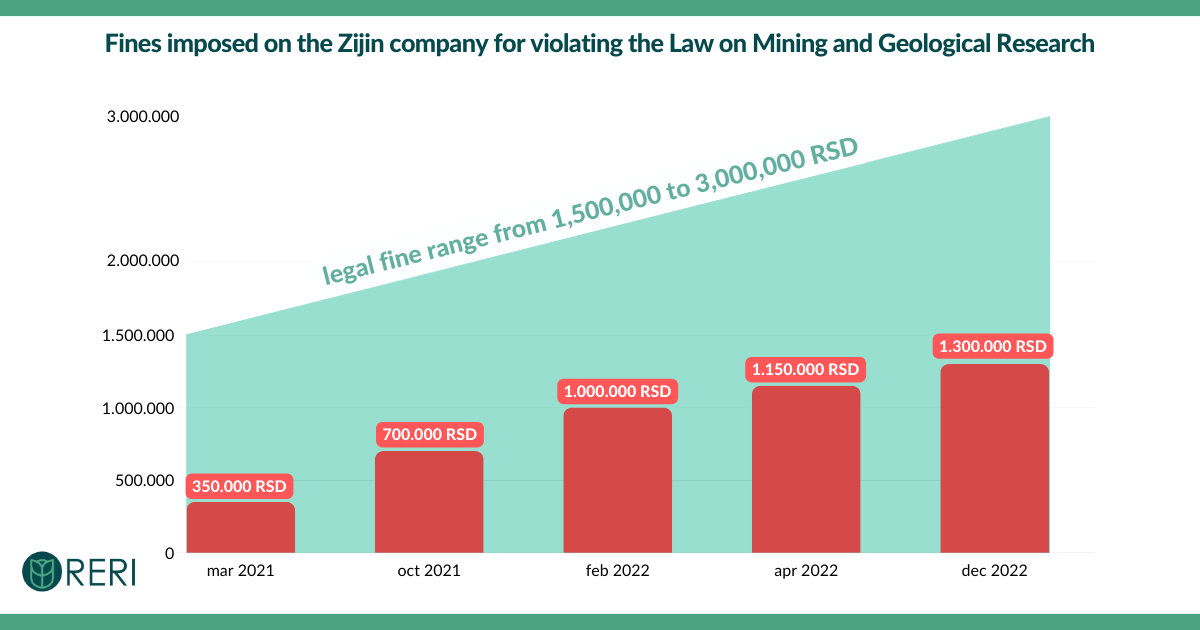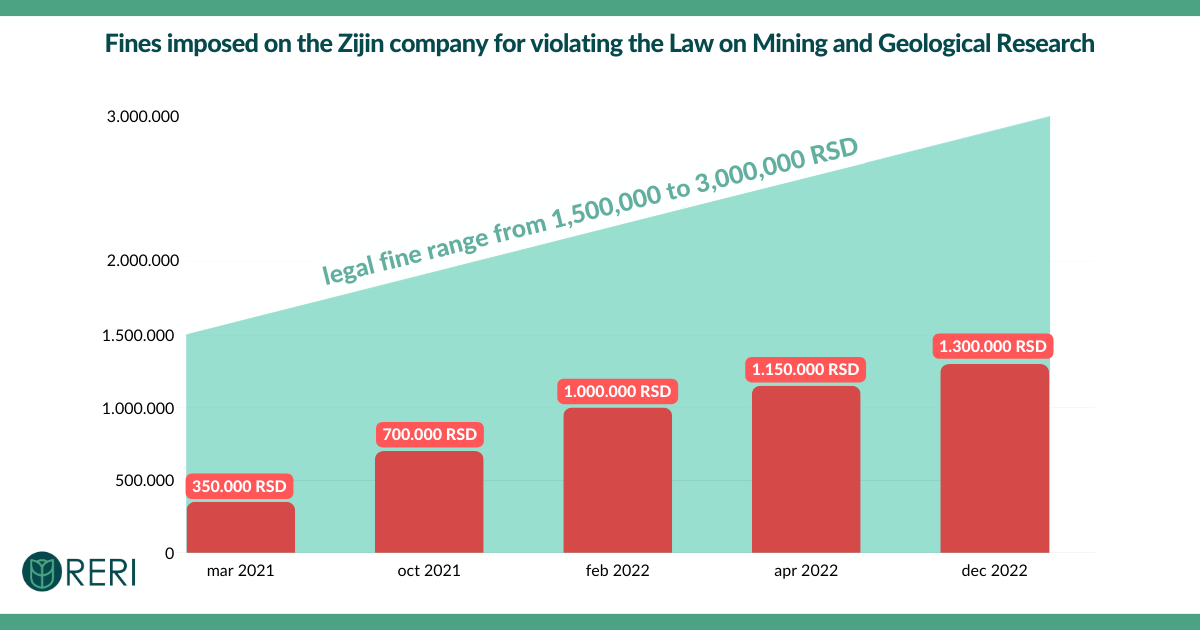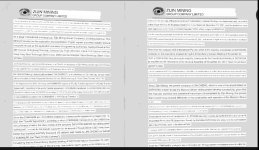INVESTIGATIVE STORIESCOURT AND PROSECUTION
Zijin’s Negligence: How the Demolition of the Smelter Cost a Worker His Life
20 Mar 2023
Jovana Tomić,
Dina Đorđević
At the Smelter, where rules and reality are miles apart, a Zijin worker lost his life. CINS reveals Zijin's negligence that preceded the accident.
It was around three in the afternoon, at the end of April last year, when
Saša Jovanjika, a
Serbia Zijin Copper worker, came to work. For some time, the company had been preparing the demolition of its
Smelter, where ore was being converted into copper, as well as the construction of a new plant.
Earlier that day, employees had tried to remove a large steel structure in the shape of a photo frame that was once used to shake the copper out of its large containers. They tried doing it with an excavator, but failed. They tried cutting it up to make it easier to put away, but they were unable to separate the pieces.
The next option was the crane, to which Jovanjika was supposed to be giving instructions. He didn’t even have time to change his clothes. He left aside his lunch bag and started working.
When the structure was hooked onto the crane, the workers started to move away to safety. Everyone except Jovanjika. “A little tighter,” he told the crane operator, “let’s see if that part will move.”
The crane operator did as he was told. That is when a part of the structure came loose and the steel weighing several tons hit three workers, including Jovanjika who was hit in the head and chest. The ambulance that arrived was only able to pronounce his time of death. Jovanjika had been killed in the first five minutes of his shift. But he was not even supposed to be there.
His job was actually to assign tasks to the workers at the
Smelter, to visit and oversee them. When the Smelter stopped working for a new plant to be build,
Zijin illegally sent production workers, such as Jovanjika, to the construction site.
The Center for Investigative Journalism of Serbia (CINS) can reveal that
Zijin, disregarding all security procedures, placed its workers in danger because it wanted to finish the reconstruction and start producing copper as quickly as possible. They are being tried in the Bor department of the
Misdemeanor Court in Zaječar, for violating the Law on Safety and Health at Work, while the preliminary proceedings at the prosecutor’s office have been at a standstill for almost a year.
Mario Reljanović, research associate from the
Institute of Comparative Law, who deals with labor law, believes that workers are treated as consumables:
„They [workers] are there to do what is needed in the moment, there are no normative standards (…) They just use them for whatever they need.“
Zijin’s negligence
Ljubodrag Milenković spent about four hours next to Jovanjika’s body. He happened to be there as an employee of the company
S Secko, which
Zijin had hired. He told CINS that soon after the accident, a crowd formed that included emergency services,
Zijin staff in charge of occupational safety, the prosecutor, and the police.
Also at the scene was labor inspector
Daliborka Pepeljak, whose job was to assess the conditions under which Jovanjika died. She spoke to eyewitnesses and combed through the documentation.
From the notes she prepared afterwards, it is clear that
Zijin did not comply with the procedures that would have ensured greater safety for the workers.
For Jovanjika’s workplace, there had to be an amended Risk Assessment Act, on the basis of which he would have known what health and safety risks await at the construction site.
Zijin failed to present it. Since its workers in the field also worked as contractors,
Zijin had to have a Construction Site Arrangement Plan. It didn’t have that either. The Plan of Preventive Measures for Workplace Safety and Health was drawn up only after Jovanjika’s death.
Saša Dimitrijević, expert associate for health and safety at work of the
United Branch Trade Unions “Independence”, says that it is particularly problematic that they did not have an amendment to the Risk Assessment Act. According to him, it is a key document for the health and safety of workers because it deals with all the dangers to which they may be exposed during work:
“Essentially, he should not have been allowed to set foot on the construction site at all if he was not familiar with the health and safety risks. These other things are a violation and some kind of procedure, but what specifically cost him his life, from my point of view, was the fact that he was not presented with the risks of the job he was going to do.”
Pepeljak filed a misdemeanor complaint against
Zijin and its General Manager
Jian Ximing for violating the Law on Workplace Safety and Health. Pepeljak demanded that both Ximing and the company be fined.
Thus, for each of these two misdemeanors – the lack of a Construction Site Arrangement Plan and the lack of an amendment to the Risk Assessment Act,
Zijin was facing a fine between 800,000 RSD and 1 million RSD, while the General Manager was facing a fine between 40,000 RSD and 50,000 RSD.
Reljanović says that these fines are not appropriate for the committed violations and that in practice, fines lower than the prescribed minimum are often imposed:
“Even if they are imposed in full, I don’t believe that they would serve as a deterrent because the fines are still small and symbolic amounts for large companies that will gain much more than they will lose through this obvious form of labor exploitation, which is illegal.”
Pepeljak informed the
Basic Public Prosecutor’s Office in Bor, which is investigating the case ex officio, about her findings. CINS was unable to obtain more information because the procedure, even ten months after the accident, is still in the pre-investigation phase.
Reljanović believes that the inspector should have closed the construction site and checked the documentation for all the workers:
“When you see that the law is explicitly violated in relation to one worker, the first thing you do is check the same thing for all other workers. But, if you just want to get it over with, then you state that there has been a violation of the law and submit a request to initiate a misdemeanor procedure”.
The inspector did not want to talk to CINS, and we did not learn more about the accident from the
Ministry of Labor, Employment, Veterans and Social Policy, overseeing the investigation:
“Given that the misdemeanor proceedings before the competent misdemeanor court are still underway and that the pre-investigation proceedings and additional expert examinations are being carried out by the competent prosecution, it is not possible to provide any details.”
Working without a permit, workers under pressure
Since
Zijin took over the
Bor Mining and Smelting Basin at the end of 2018, pollution in the city has increased again. The Smelter is largely to blame for this. In an effort to reduce excessive pollution, but also to increase production,
Zijin decided to demolish the old Smelter and build a new, more modern one. The work during which Jovanjika was killed was being carried out by the company
S Secko from Zrenjanin, but also
TeiKom from Belgrade.
Zijin‘s plan was ambitious – the start of production in the new
Smelter was scheduled for the end of last year. The demolition began in April, and, as CINS reveals, without the permission of the
Ministry of Construction, Transport and Infrastructure, which
Zijin received only in May.
Ljubodrag Milenković, who had worked at the
Smelter for years before
S Secko, told CINS that there was a rush:
“
Zijin insisted on short deadlines. Unrealistic deadlines, but that’s why we worked harder. We did not have regular working hours, we stayed there for as long as there was visibility”.
In order to speed everything up,
Zijin also sent to the construction site its own workers, who had worked at the
Smelter before the reconstruction, explains
Žarko Radulović, president of the
Bor Smelter Trade Union Organization, of which Jovanjika was a member.
“It wasn’t their job. This was done by third parties [companies], but in order to speed things up, in order to get something done, they hired our people to be there in case something needed to be lifted or pulled, our crane operator was there and we saw what ended up happening.”
According to Radulović, the motive was to save money. He says that the
Smelter, which has several hundred workers, stopped production during the reconstruction, and that the company sent workers who had nothing to do to the construction site as help.
Reljanović says that
Zijin first had to legally regulate the position of those workers, given that these are practically new jobs:
“Those workers had to get annexes to their contracts because they were not employed to work in construction, but in the
Smelter. Secondly, the question arises as to whether these workers are qualified for that type of work – whether they have the appropriate educational profile (…) That’s just not the way you do it.”
Jovanjika did not have the necessary contract annex for the construction site, and it is debatable how qualified he was for this type of work.
Crane operator
Saša Antonijevićclaims in his statement given to the inspector that before the reconstruction, the cranes were being handled by other crane operators, and that Jovanjika was only sometimes present and participating in those tasks. After the demolition began, according to his statement, that changed, so crane handling was also performed by the shift foreman’s assistant, which was Jovanjika’s position.
Saša Dimitrijević from the
United Branch Trade Unions “Independence” explains that even if Jovanjika had had experience, crane operation in production and in construction are two different things:
“You can drive a car, I’ve been driving for 30 years and I have a license, but I can’t drive in races. In order to drive in car races I have to have a license for it and know some other things. The fact that I know how to drive a car and how it works does not give me the right to drive a bus in city traffic.”
When asked by CINS,
Zijin said that they cannot comment on this case, given that the proceedings before the
Misdemeanor Court are ongoing.
Ljubodrag Milenković, who earned his pension at the Smelter, now for the first time experienced a colleague die in front of his eyes. Even though all the eyewitnesses, including himself, told the labor inspector that Jovanjika was wearing a helmet at the time of the injury, in his interview with CINS, he claims otherwise – that Jovanjika was not wearing a helmet:
“That’s just how it goes at the Smelter – rules are one thing, reality is another.”
At the Smelter, where rules and reality are miles apart, a Zijin worker lost his life. CINS reveals Zijin's negligence that preceded the accident.

www.cins.rs





















